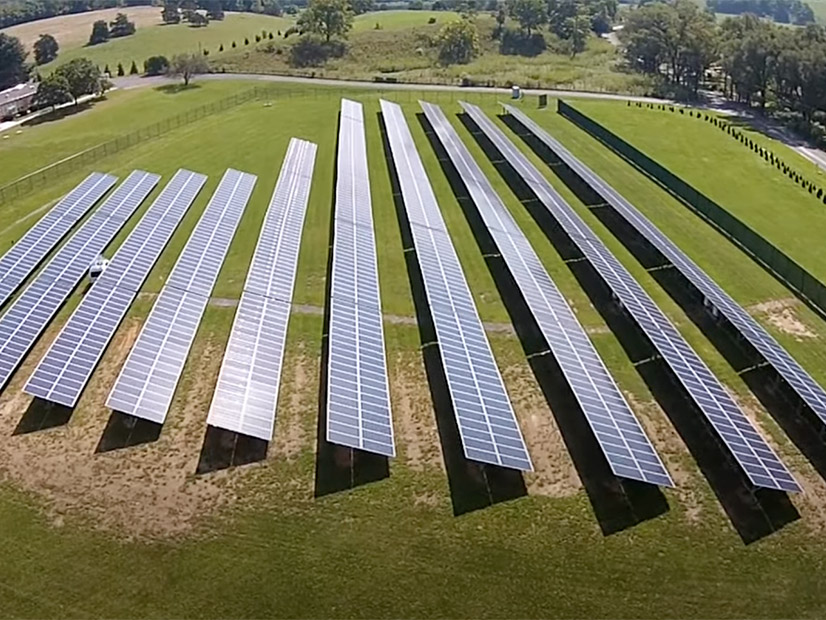
Community solar advocates offered a compromise while Dominion Energy (NYSE:D) stood its ground in the latest round of filings last week over the minimum charge for customers who subscribe to shared solar projects.
The parties filed comments in response to the recommendation by Virginia State Corporation Commission hearing examiner D. Mathias Roussy Jr. that the commission approve its staff’s “Alternative Option B,” of a $55.10 minimum monthly charge — about $20 less than Dominion’s proposed charge of more than $75/month (PUR-2020-00125).
The utility had said anything less than that would result in cost shifts to nonparticipating customers. But commission staff, legislators and the Virginia Department of Energy had joined solar advocates in expressing concern that Dominion’s proposed charge is too high to encourage participation in the shared-solar concept. (See Stark Choice for Va. Regulators on Shared-solar ‘Minimum Bill’.)
Expected to launch in July 2023, the shared-solar program would allow apartment dwellers and those in homes unsuitable for rooftop solar to offset part of their electric bills by purchasing a share of solar projects remote from their homes.
Roussy’s recommendation satisfied neither Dominion nor advocacy groups, the Coalition for Community Solar Access and Appalachian Voices, which filed comments on the March 9 deadline.
Dominion said it stands by its proposal. “The company has consistently advocated for a minimum bill that is narrowly tailored to recover only those costs contemplated by the statute and regulations governing the shared solar program,” its counsel, Jontille Ray, argued. “As has been noted already in this proceeding, the minimum bill is not a company creation; it is a requirement of law.” Ray said that qualifying low-income customers would be exempt from the minimum bill.
Writing for Appalachian Voices, William Cleveland of the Southern Environmental Law Center called for adoption of CCSA’s minimum bill proposal of $7.58 per month. “Given Dominion and staff’s inclusion of non-incremental costs in their proposals and failure to produce any evidence or analysis of cost shifts or related cost-benefit analyses, the commission should select a minimum bill that does not rely on those omissions,” Cleveland said. “Unlike Dominion’s proposed minimum bill and Staff Alternative Option B, the low level of CCSA’s minimum bill — $7.58 — would deliver considerable savings to participating customers and help create a workable program.”
CCSA was more willing to compromise. After reviewing the back-and-forth in hearings before the SCC, Eric Wallace, counsel for the group, wrote, “With a $20 administrative charge component (as estimated by Dominion) factored in, CCSA’s proposal increases to a $20 minimum bill plus a $6.58 charge, so customers pay $26.58.”
CCSA’s original $7.58 proposal factored in a $1.00 administrative charge. CCSA’s revised proposal “is substantial relative to the $15-$20 range for other minimum bills around the country.” In Dominion’s South Carolina service territory, a minimum charge of $13.50 was recently approved for shared solar residential customers, he said.
Andy Farmer, the SCC’s interim director of the Division of Information Resources, told NetZero Insider Monday that the agency “does not have a specific timetable for issuing a final order in this case.
“An order could be expected in a few months,” he said.


